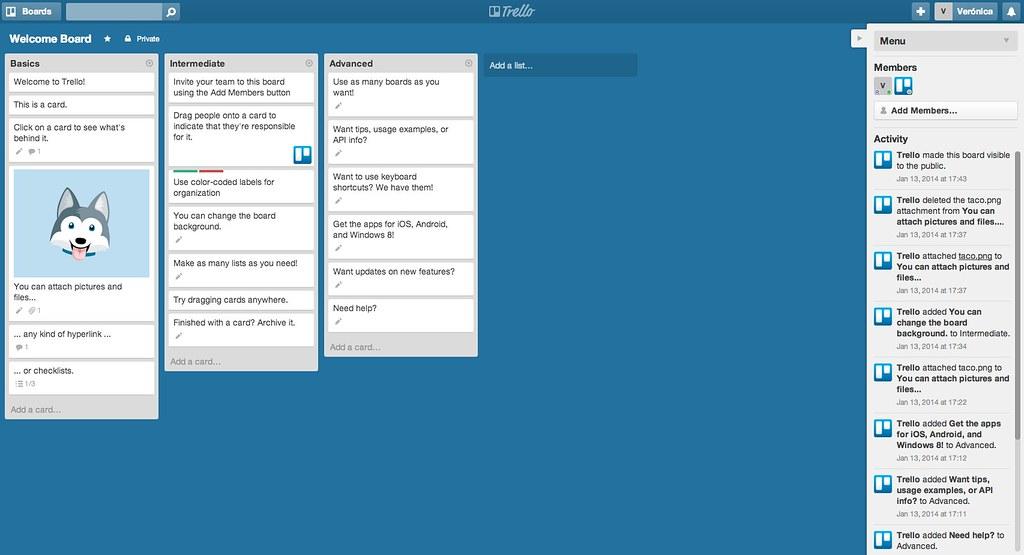If you want to become a technical project manager, this guide is what you need. From my own experience in the field, I’m so excited to share the roadmap with you.
In this guide, you can explore the skills, tools, and certifications needed to flourish in this role. So, let’s check out the details!
Overview
A technical project involves tasks in technology solutions. For example, creating software and designing a network can be technical projects.
It’s challenging to build software, especially a large-scale product. That’s why companies need technical project managers to monitor the whole process.
Who Is A Technical Project Manager?
A technical project manager leads the technical team in their company. A project has four stages, and the manager has to monitor each stage.
As the leader, the project manager must have technical expertise. They need management skills, too, to handle their team members. So you can say that it’s a hybrid job.
What Does A Technical Project Manager Do?
Leading a team is not easy. Plus, as a technical project manager, I carry a heavy workload. Here is what I do every day:
- I develop and assess project proposals. This task often involves setting goals for the whole team to achieve.
- I also sort out the resources my team needs for the project.
- My team has meetings regularly to ensure we are on the same page. And as a manager, I hold those meetings. During each discussion, I listen to every member’s opinion and find the best solutions.
- Stakeholders should follow up on the projects, too. Thus, I report the progress to them.
- I work on technical projects. Hence, I have to explore and evaluate different software and hardware options.
Where Do Technical Project Managers Work?
I work in the office. Other technical project managers have the same working environment. They can work anywhere and for companies of different sizes.
Technical project managers are necessary in various industries. Healthcare, construction and IT need them the most.
Qualifications For A Technical Project Manager
The requirements for technical project managers differ from company to company. But typically, you have to match these expectations:
- At least a bachelor’s degree in a relevant field
- Experience in IT projects
- Good leadership skills
- Attention to detail

How To Become A Technical Project Manager
Joining a technical project is challenging. And if you want to lead it, you must work harder. Here is what you need to do to become a good technical project manager.
1. Obtain professional credentials
There is no definite requirement for this position. However, you should get at least a bachelor’s degree.
My major at university is computer science. It’s also a common path for those who want to work in this industry. You can also consider a degree in software engineering or IT. They all will provide you with a solid background.
Plus, since you will be the manager, studying some management subjects can be helpful. Business administration is a good example.
If possible, work on both aspects of your job: IT and management. For example, if you have a degree in computer science, you should consider getting an MBA.

2. Practice using tools
Managing a technical project will give you a hard time. I used to get into trouble when first leading a team. Luckily, I have found some interesting tools to help with my job.
Asana
I was in love with this tool right from the first time using it. The modern user interface and design encourages me to explore it more.
There are many features here. I like the customizable views most. They help me choose how I can view my projects.
I can see who is working on which task and the detailed project timeline. Thanks to these tools, I can manage resources properly and avoid overlapping tasks.
Trello
The best thing about Trello is its simplicity. You can organize the tasks on cards. Then, feel free to move them across vertical rows after checking their status.
For example, you can divide tasks into sections like “in progress,” “ready to review,” and “done.” So, you can monitor the progress with just a quick look.
Roadmunk
I heard that managers at Amazon used Roadmunk to manage their projects. So, I tried it, and it worked amazingly.
Roadmunk gives me a big picture so everyone in the team can view product vision easily. It can even help my team collect feedback and focus on new features. All these functions make it an excellent planning tool.
Flow
Flow is a famous online platform for designers. I like how simple it is, as Flow tries to keep its management features to a minimal level.
This simplicity can be a pro or con. If you prefer something simple, you can go with it. However, if you need more flexibility and features, consider other tools. To me, Flow can only be a good tool for small projects.

3. Obtain your certifications
It would be perfect to get some certifications, especially if you just study either IT or business management. The certificates are a great way to get what you don’t have.
There are many certifications for project management. Depending on your company, you can choose the one that matches their requirements. Here are some options to consider if you have no idea to start:
PMP
This certification is among the most industry-recognized courses. With more than one billion learners, PMP sets the standard for project management in many areas worldwide.
When attending this course, you can learn how to conduct processes and manage people. You will also grasp the management principles.
CAPM
If you need a certificate that can set you apart from the competitive job market, grab this one. It will also boost your credibility to deal well with technical projects.
This certification teaches about fundamentals first. Then, you can learn the detailed processes of project management. Communication and risk management are parts of the course, too.
CompTIA Project+
CompTIA Project+ is more versatile as it covers the essential concepts in project management. It will help you explore the basics, tools, and constraints for managing your projects in the future.
PPM
There are many interesting topics in this course. For example, you can learn different techniques to lead and manage projects. It also teaches you how to create effective project schedules and run marketing campaigns.
One of the best things about this course is that you will know how to motivate your teammates. This task may sound simple, but even many people fail to do it.

4. Gain project management & technical experience
The more experience you earn, the more job opportunities you have. Experience here doesn’t mean working as a technical project manager. You are a beginner, but there are many ways to gain practical experience.
You can join clubs or groups related to your field during your school days. Then, you will have a place to work on group projects and develop your project management skills.
Plus, you should actively seek out opportunities to contribute to projects. If possible, volunteer to be the leader. Do not be shy, as your future job as a manager doesn’t allow you to hide your ability.
Those projects don’t have to be complex. You can simply find coding competitions or technical assignments. All these simple tasks can give you hands-on experience.
Take an internship, too. It will surely be a game-changer, as you will be exposed to real-world projects. You can even work with professionals and learn how to join the dynamic environment of a tech team. It must be super fun and beneficial!
You can even earn money when working as an intern. But of course, the salary is not high for a beginner.

5. Build your resume
The resume is where you can showcase your skills and everything you have for the job. So try to make it impressive that your potential employers want to meet you in person once they read your resume.
The question is: How can you make a good resume? Well, I have some tips here:
- Begin with a concise statement to set the right tone from the start.
- Then, showcase any relevant degrees and certifications. They validate your knowledge for the job.
- List your skills. If you can use any software or tools, mention them, too.
- Talk about your achievements. It would be best to use numbers to illustrate what you have accomplished.
- Finally, tailor your resume for each job application. This simple adjustment shows that you are dedicated to the job.

6. Hone your skills
A technical project manager needs many skills to excel in their role. Even when I’ve become a manager, I keep developing what I already have and build up new skills.
So, what skills does a technical project manager need? Well, the exact answer varies depending on each company’s requirements. But generally, you should work on these skills:
- Technical expertise: Of course, when you lead a technical project, you must have extensive technical expertise. For example, you may work on a software development project. You don’t have to be a good coder, but you should be familiar with coding.
- Leadership: This skill includes many things, such as guiding and inspiring a group of people. Strong leadership lets you identify your team’s strengths and direct them to the best channels.
- Communication: You will be the speaker of your team when meeting with clients and stakeholders. Thus, you need good communication skills.
- Organization: This skill helps you manage your time effectively. It will also assist you in handling resources and budget for your projects properly.
- Decision-making: At the end of every meeting, you have to sum up and give a conclusion after considering your team’s opinion. So, train yourself to be a good decision-maker.
- Financial planning: Budget is essential for your projects. So, before running any project, you have to make a good financial plan. This way, you can complete your project within the financial constraints.

7. Try entry-level positions
You can’t just jump straight to the technical project manager position. Before you have enough skills and experience, consider these roles:
- Project coordinator: This job requires you to oversee a project’s development. Thus, you have to work with cost, timeline, and other technical aspects of your project.
- Project scheduler: When working in this role, you will implement and oversee the project schedules. You need good organizational skills to work well with technical experts and project managers.
The two jobs deal with tasks related directly to a technical project. When you work in these positions, you know the challenges a technical project manager will meet. You can also strengthen your skills to overcome them.
8. Apply for technical project manager jobs
Finally, you can apply for a technical project manager position. Often, if you perform well, you can get promoted to this role in your current company. Most employers prefer candidates with experience. And if you are familiar with their working process, you will be outstanding.
Otherwise, you can apply for another company. Remember to update your resume so it can reflect what you have exactly.

Who Can Become a Tech Project Manager?
Being a tech project manager is interesting. However, not everyone can try this role. So if you are considering it, check these factors:
- Leadership drive: Those who like guiding the team can be a good match for this job.
- Task management: The project manager should also be good at keeping everyone on track.
- Goal-oriented: Do you often set targets for everything you do? It’s a good trait for a project leader.
- Technical knowledge: To become a technical expert, you must be confident in your technical knowledge and skills.
Why Should You Be A Technical Project Manager?
There are many reasons for you to become a tech project manager. For example, you can receive good pay. And since this job is in high demand, you will have more job opportunities.
Moreover, you can make an impact on your company. The satisfaction you can gain from this job will encourage you to commit more.
How Long Does It Take to Become a Technical Project Manager?
It depends on your chosen path. Generally, you need four years to obtain a bachelor’s degree. If you want to get a master’s degree, you will spend more time studying.
This job requires experience, too. Often, you may work in entry-level positions first. Then, after a few years of taking this role, you can become a technical project manager.
Salary and Job Outlook
A technical project manager is a high-level position. Hence, the salary is high, too. According to ComputerCareers, tech project managers can earn about $115,573 annually (in 2023).
This job also has a steady outlook. The BLS suggests a 9% increase in management positions from 2020 to 2030.
Final Lines
You can become a good technical project manager with the right tools, certifications, and skills. Remember to keep learning because this industry is constantly evolving.
So now, go forth with confidence! The first steps will be hard, but you can go straight to the final line with commitment. Good luck to you!
